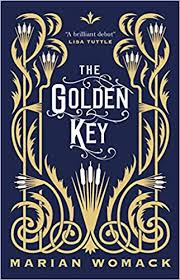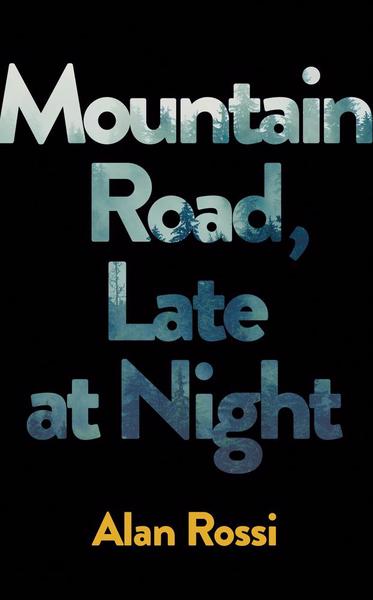I have just been reading about the death of an elderly lady, Hilda Churchill, from Covid-19, just nine days short of her 109th birthday. Hilda was born in 1911 and was a survivor of the Spanish flu pandemic of 1918-19. She had not been well in any case, but in the photo of her posted widely online, her life and spirit still shine through. It is through moments like these that we attempt to grasp the enormity of what is happening.
Hilda was my gran’s name. Fare well, Hilda.
I am unable to visit my mother while we are in lockdown, even though she now lives so close to us i can literally run to her house. Soon after my mother moved to the island, we started a complete rewatch of Inspector Morse, beginning at the beginning with Endeavour. This created something of a whiplash effect as the production values and self-awareness of the ‘prequel’ turn out to be streets ahead of those early episodes of Morse. Remember how sophisticated and complex the series seemed when it first hit our screens back in 1987? Turns out it was sexist and racist, with Morse himself suffering from more than a touch of the Alex Salmonds. Shame. Still, we soldiered on and things improved. We’d just seen Who Killed Harry Field when the lockdown was announced, and this Friday should have seen us having supper together and watching Greeks Bearing Gifts, a classic episode starring Martin Jarvis that I know so well I can quote whole sections of it. This is heartland Morse, the final three seasons in which the canon was so well established it set the standard for TV detective shows for years to come.
Everyone will by now have their personal list of stuff they can’t wait to do when the lockdown ends (it still feels surreal even writing those words, to realise how rapidly this situation has developed a language and iconography of its own, a set of meanings and conditions we have come to accept as our lived reality) and one of the things on mine will be getting back to Morse, hopefully over a curry and a large glass of wine.
In the meantime, and to fill that Morse-shaped hole I thought I’d unleash a blogging project to run for the duration of the lockdown and entitled (somewhat dubiously) Corona Crime Spree. The aim is simple: to read and blog a crime novel every week. To make this as interesting as possible I will aim to diversify my reading within the genre, taking in writers from a wide variety of backgrounds and showcasing radically different approaches to writing crime.
So, first up:
The Golden Key, by Marian Womack (2020)

A mash-up of Golden Age detective fiction and Victorian gothic, The Golden Key introduces us to the character of Helena Walton Cisneros, a resourceful and fearless young woman who poses as a medium in order to carry out her real work as a detective. Helena has an almost uncanny talent for finding lost things and lost people. Her services have been engaged by Lady Matthews, an ageing gentlewoman still tormented by the disappearance of her three nieces in an unexplained incident twenty years before.
Meanwhile, a young man named Samuel Moncrieff is pursued by nightmares concerning a ruined Tudor mansion in the mist-shrouded emptiness of the Norfolk fens, and Eliza Waltraud, a scholar working on a biography of the climate scientist Eunice Foote, grieves the absence of her lover, Mina. Only time will show how these characters are connected, and how their stories unfold.
The first thing to say about The Golden Key is how richly textured and intelligent the writing is. Some readers may remember my unreserved admiration for Womack’s debut collection Lost Objects, with its distilled prose, political urgency and original imagery. There is a slightly looser feel to the writing in The Golden Key, as befits the longer story arc. The imagery and even the sense of place are different too, drawing on the historical genres that have inspired this novel, yet Womack has a genuine feel for the Gothic and her talent for summoning an atmosphere or describing a place is keenly on display. Here she is writing about dolls (you can imagine how this resonated with me):
She looked through the window at the abandoned doll, so like an abandoned boat after a flood. The glass gave her back her own reflection, paler than usual, the untamed wheat-blond hair, the tiny curls stuck in an unimaginable tangle. She hadn’t taken care of herself properly in weeks, and didn’t plan to do so. Who cared? She looked no better than the doll, she thought. Secretly, she felt happy about the doll’s fate. She despised them. The French Jumeau, with its sad porcelain face, long eyelashes drawn on its forehead, and its real, dead hair. The mechanical baby from the Steiner house, the most valuable thing in that cottage, although none of its occupants were aware of the fact. The distracted grimace of the little blond doll, bought in Paris in another lifetime.
And here she is describing the atmosphere of The Golden Key’s fenland setting:
They climbed down from the pony and cart into a reed swamp. On the other side of the water stood the ruins. There were a crumbling heap of derelict constructions that looked as if they had been washed ashore by the tide. They did not look as if they had ever been standing in any way or form. The island resembled a nowhere place, neither land nor sea, and it had probably been like that for centuries for the church to end up like it was now, a collection of stones scattered by the hand of God over that mound. It had happened, eventually, a gale that lasted several days, which submerged this bit of land entirely, cracking the stone walls forever, breaking the windows, collapsing the little tower as if it had been made of gingerbread. And then the church had fallen, and the bell had stopped tolling forever.
There is writing like this in abundance, at times menacing, at times merely elegiac but always full of feeling. You can sense Womack’s personal investment in every page of this story, a brooding unease with the status quo that forms The Golden Key’s most cogent link with the (mostly) near-future or alternate world stories in Lost Objects.
As a detective story, The Golden Key shows a lot of promise. The mysterious disappearance of the three Matthews sisters is just the first indication of how badly things have gone awry in this particular corner of England: as Helena continues her investigation, she soon discovers other, similar disappearances of children in the same area, most of which seem to be connected with the ghastly visitations of a mysterious vagrant who may not be quite what they seem. Looking into the circumstances surrounding the confinement of Sam Moncrieff’s fiancee to an asylum, she is mystified and concerned to find that there seems to be no record of Sam’s birth or parentage. Who exactly is he, and where is he from? Then there is Lady Matthews herself: what is her interest in the crumbling ruins, and what does she know about the origins of the strange sickness afflicting persons in their vicinity?
Throughout much of the novel I was anticipating a scientific explanation to these mysteries, the kind of ‘banishing of the ghosts’ that became fashionable during the heyday of Gothic romances (we might think back to Sarah Phelps’s recent adaptation of Agatha Christie’s The Pale Horse to find a fine example of exactly that tendency). Womack goes her own way though, and although science sits front and centre in The Golden Key, the novel’s core inspiration is never far away, the numinous leaking through into the rational, infecting the entire narrative with its uncanny light.
If The Golden Key has a problem at all, it is one of structure. There is so much going on in this book – at least three key plot strands and as many subsidiaries – that a firm through-line is essential for the reader to keep a handle on everything. For me at least this sense of order is missing, with the narrative threatening at times to spiral out of control. Important revelations are made in a perfunctory sentence, new characters introduced without warning and seemingly without reason. One of the most important aspects of Golden Age detective fiction – and an area in which the best of its authors excelled – lies in preparing the reader for what is to follow, setting up the mystery in such a way as to involve the reader’s active participation in its solution. In The Golden Key, readers are too often teased with the possibility of this kind of collaborative problem-solving, only to have it snatched away at the last moment by a change in direction or the introduction of a new plot thread.
If anything, The Golden Key suffers from a surfeit of riches. There is enough material here for two or even three novels, all of it interesting, compelling, and beautifully imagined. I often found myself wishing that Womack had concentrated more on Helena, for example, and kept Eliza’s story in reserve. Her obsession with Eunice Foote, her broken relationship with Mina – these are important and fascinating subjects and the framework of the narrative as it stands simply does not allow them the time and space to be properly explored. Eliza deserves an entire novel to herself!
The Golden Key is an alluring and deeply personal text, consolidating and expanding Womack’s achievement in Lost Objects. If the narrative is overstretched in places, this is amply compensated for by the writer’s talent, passion and originality. Here’s hoping we see more of Helena in the future!
